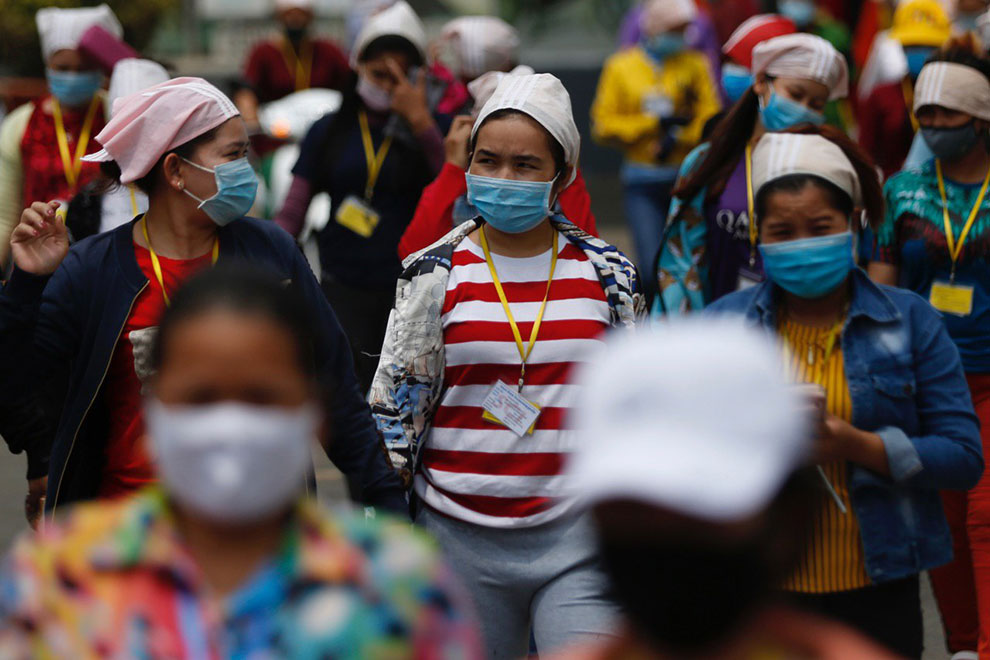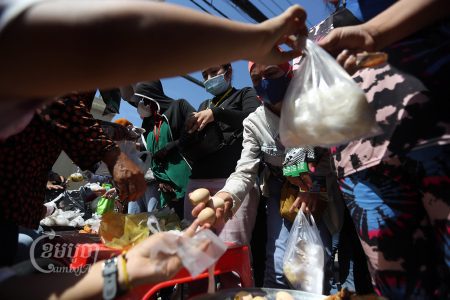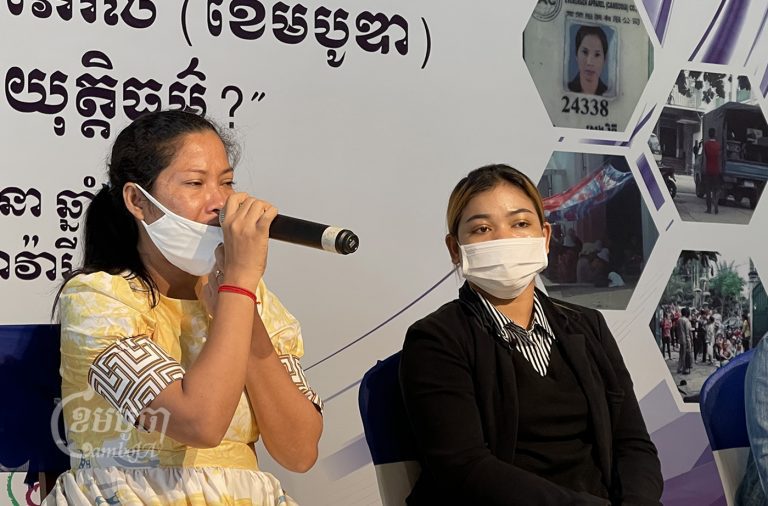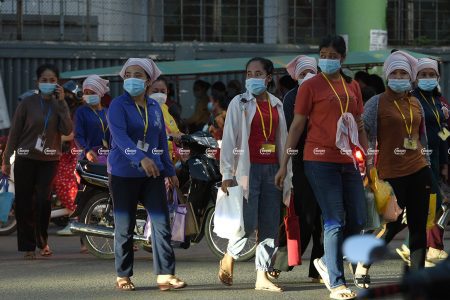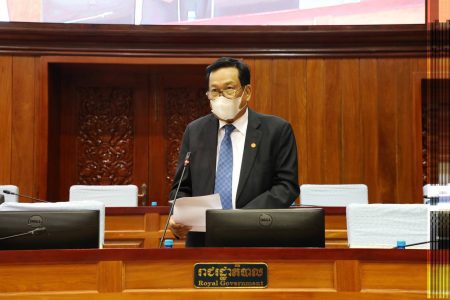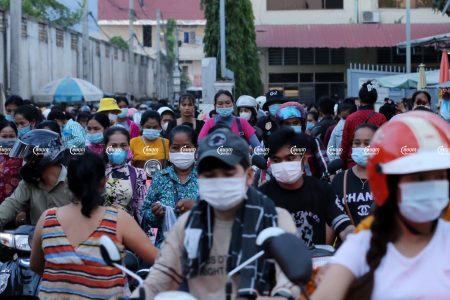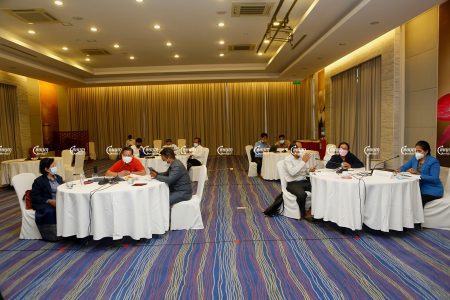Cambodian apparel and footwear sector groups and the EU’s business chamber in Cambodia have appealed to the European Union to postpone its partial suspension of duty-free trade with Cambodia due to the effects of the Covid-19 crisis on Cambodia’s economy.
A joint letter on June 2 from the Garment Manufactures Association of Cambodia (GMAC), Cambodia Footwear Association (CFA) and the European Chamber of Commerce in Cambodia (EuroCham) said the Covid-19 pandemic has had a devastating impact on Cambodian apparel, footwear and travel goods manufacturers and workers. In the letter, the groups request a 12-month delay to the EU’s suspension of its ‘Everything But Arms’ (EBA) tariff breaks, which were due to be suspended on August 12. The suspensions would affect 20 percent of apparel imports, 30 percent of footwear imports, and all travel goods imports.
Some 256 Cambodian garment and footwear factories have halted operations, the letter says, with most of the country’s remaining factories operating at reduced capacity. It goes on to say that more than 130,000 garment workers have lost their jobs, a number that is likely to continue to rise.
The letter emphasized that in the first quarter of 2020, a number of buyers cancelled orders that had either already been completed or were underway.
“This has had a very negative impact, of course,” it said. “What has received less attention are the orders that have now not been given for the second and third quarter of 2020.”
The three groups estimated that Cambodian garment sector sales in the second quarter of 2020 will likely fall by 50 to 60 percent compared to the second quarter of2019.
“Hundreds of thousands of Cambodian families are at risk of job loss and millions of Cambodian citizens could fall back into poverty,” as a result of the partial EBA suspension, the letter said.
The groups also acknowledged that adrop in demand from global buyers was inevitabledue to the economic slowdown stemming from the Covid-19 outbreaks in both the European Union, which is Cambodia’s largest export market, and North America.
“There are a number of brands and retailers that have been forced into bankruptcy by the impact of the pandemic, and the economic distress in Europe and North America is likely to remain, and will continueto impact the garment sector in Cambodia well into the fourth quarter of 2020, and indeed in 2021,” the letter said.
Kaing Monika, deputy secretary general of GMAC could not be reached for comment.
Labor Ministry spokesman Heng Sour said that the request to delay the implementation of EBA cuts is between the garment industry and the EU.
“That is the case of the private sector and relevant parties. The Cambodian government specified our stance on EBA a long time ago,” Sour said, declining to comment further.
After a yearlong review, the EU in February said it would reinstate standard tariffs on selected garment and footwear products and all travel goods and sugar, amounting to about $1.1 billion in trade. It had found serious and systematic violations of human rights in Cambodia, leaving it “no other choice” than to partially withdraw the EBA scheme, it said.
In a statement issued shortly after the EU’s February announcement, the Foreign Affairs Ministry criticized the decision as politically driven, even as it defended its dissolution of the country’s main opposition party as merely following judicial processes.
“The government remains firm in its principled position in rejecting any attempt by external parties in their use of trade and development assistance as pretexts to justify their interference in Cambodia’s internal affairs,” the ministry said at the time.
Yang Sophorn, president of the Cambodian Alliance of Trade Union, said it was good that GMAC had requested a delay in the EBA withdrawal.
“This is a good idea, but it’s not the only choice because the government could also help to solve this problem,” Sophorn said. “It’s important for us to know whether the government actually intends to solve its [human rights] problems or not.”
Pav Sina, president of the Collective Union of Movement of Workers, said he also approved of the garment industry groups’ appeal.
“I think that it’s a good opportunity to make the request because both the world and Cambodia are struggling due to Covid-19,” Sina said. “If the EU withdraws EBA from Cambodia in August, Cambodia will face serious difficulties.”
He noted that unions and federations would soon discuss the situation again and would likely also make another request to the EU. He added that before the Covid-19 pandemic, unions and federations had already appealed to the EU twice to keep the tariff-free trade agreement.
“We will request that the EU continue to keep EBA in Cambodia in the future,” Sina said.


